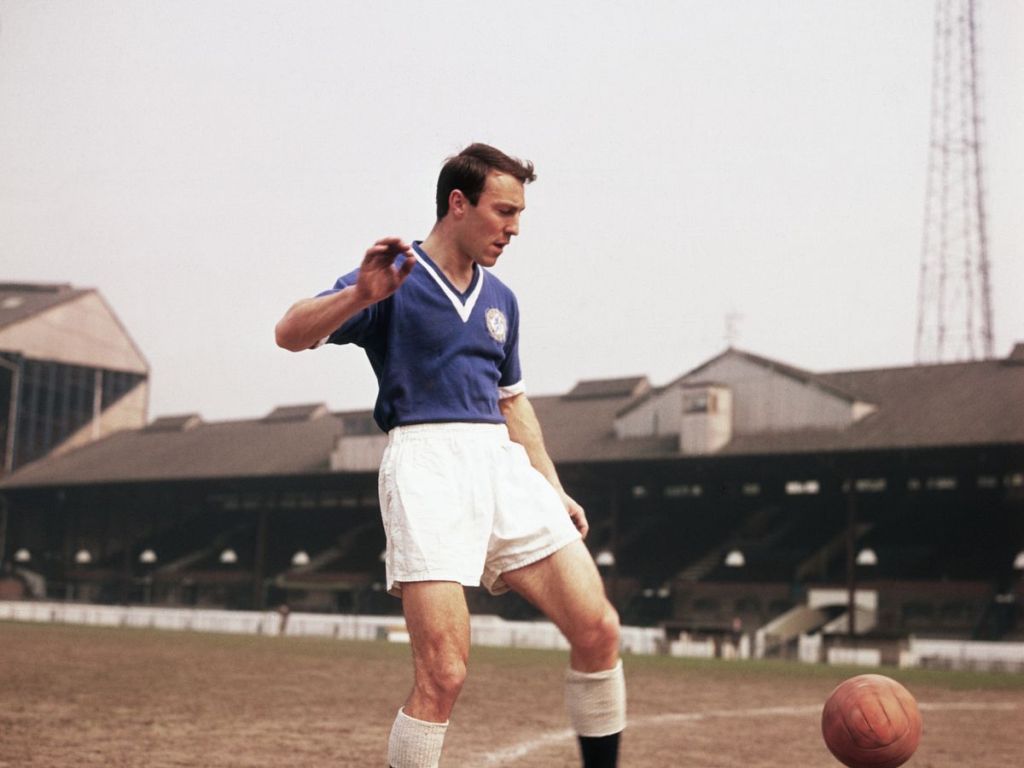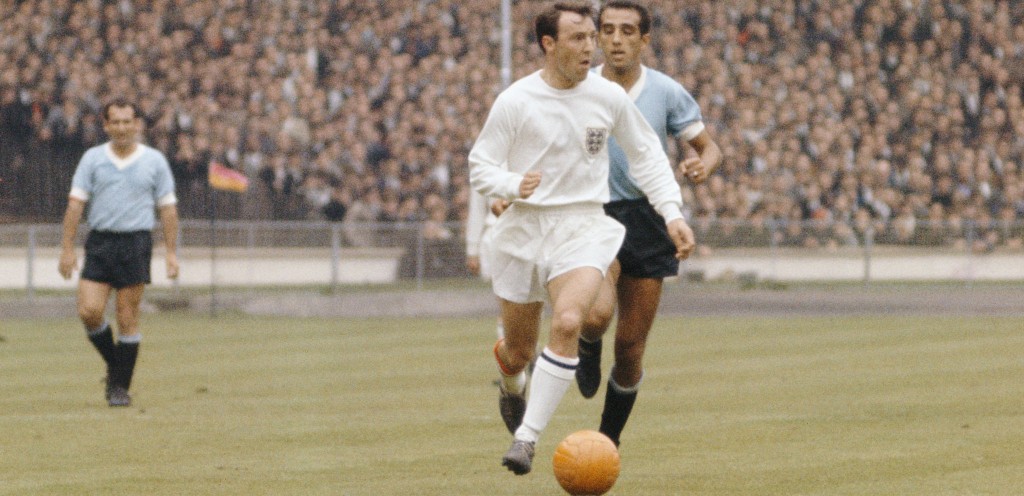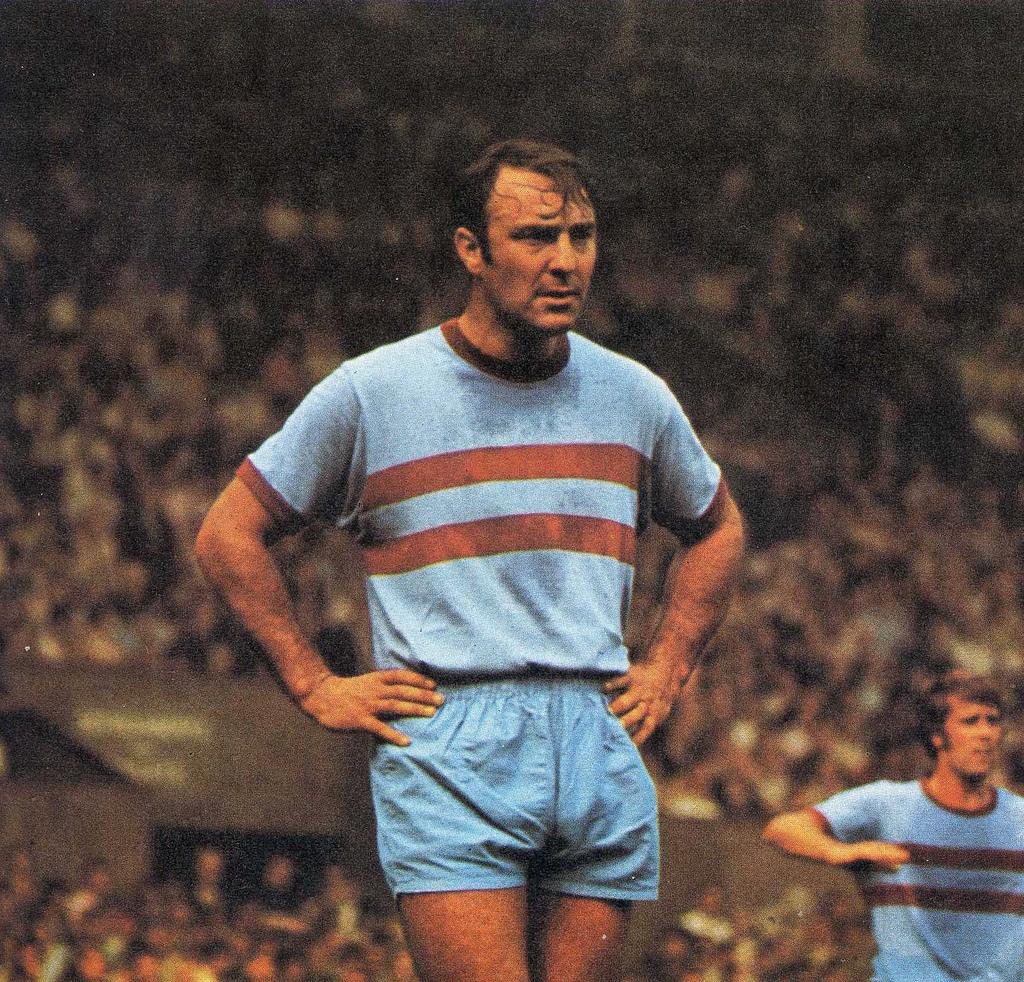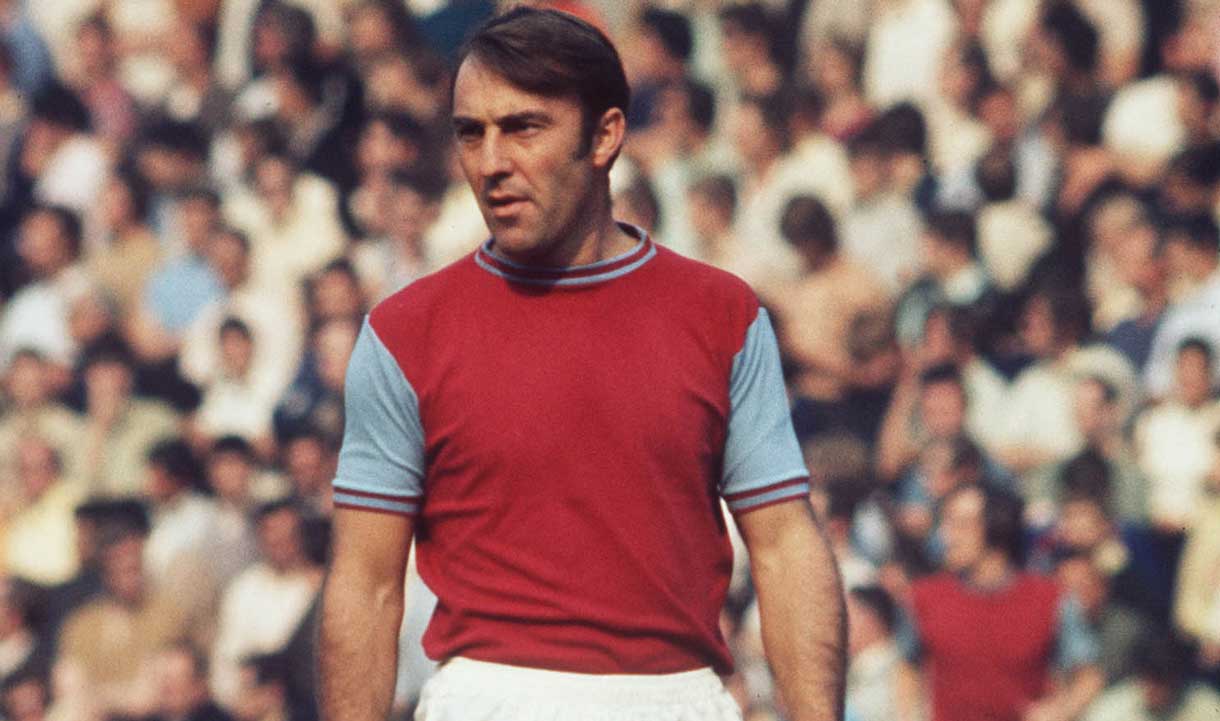James Peter Greaves MBE was born in the heart of London’s East End, in Manor Park on 20th February 1940 and was raised in Hainault, Essex. As a schoolboy, he was scouted playing football by Chelsea‘s Jimmy Thompson, and in 1955 he signed as an apprentice to become one of “Drake’s Ducklings”; named after manager Ted Drake in response to Manchester United‘s “Busby Babes“.
As a forward, Greaves hit the back of the net for fun and was a prolific goal scorer. He credited his relaxed demeanour, inner confidence and composure for his success on the pitch. With great acceleration and pace, clinical finishing, dribbling abilities and the knack of being in the right place at the right place, Greaves was always destinated for football greatness.
He began his career as a professional footballer at Chelsea in 1957, scoring 124 First Division goals in just four seasons. His success resulted in a high-profile move to Italian side A.C. Milan for £80,000 in April 1961.

However, his overseas career was short-lived and Greaves returned to England with Tottenham Hotspur for a fee of £99,999 in December 1961 where he won the FA Cup in 1962 and 1967, the Charity Shield in 1962 and 1967, and the European Cup Winners’ Cup in 1963. He never won a league title but did help Spurs to a second-place finish in the 1962/63 season.
Greaves scored 44 goals in 57 full England internationals between 1959 and 1967. He played in both the 1962 and 1966 FIFA World Cups, but his injury in the group stage of the 1966 World Cup meant he lost his first team place to Geoff Hurst -and we all know what happened after that!
England, of course, went on to win the World Cup, but Greaves was not given his medal until a change of FIFA rules in 2009. He was also part of the squad that finished third in UEFA Euro 1968, although, again, he did not play any minute in the finals.
As England‘s fourth-highest international goal scorer with 44 goals; Tottenham Hotspur‘s highest ever goal scorer with 266 goals and the highest goal scorer in the history of English top-flight football with a total of 357 goals, Greaves assured himself the status as a true legend of the game.

However, the accolades do not stop there – he also scored six hat-tricks for England – more than any other player before or since. He finished as the First Division‘s top scorer in six seasons. He is also a member of the English Football Hall of Fame.
In March 1970, Greaves joined West Ham United in part-exchange for Martin Peters‘ transfer to White Hart Lane. He scored two goals on his Hammers debut in a 5–1 win against Manchester City at Maine Road. However, there was to be trouble ahead, when in January 1971, Greaves was involved in late-night drinking with Bobby Moore, Brian Dear and Clyde Best, prior to an FA Cup tie away to Blackpool.
It had been suggested that the game was unlikely to go ahead due to a frozen pitch and the likelihood of frost that night. Against the wishes of manager Ron Greenwood, but believing that there would be no game the following day, Greaves drank 12 pints of lager and did not return to the team hotel until 1.45am.

The match did then go ahead, and West Ham lost 4–0. Greaves claimed the defeat was not a result of the late night, the drinking or the frozen pitch, but because the West Ham side of which he was a part was just not good enough. As a result, the players were fined and dropped by the club.
At this stage in his career, Greaves was struggling with his fitness and his motivation. Towards the end of his career with West Ham Greaves’ drinking began to spiral out of control – with him often going straight from training to the nearest pub, where he would remain until closing time.
He later admitted that he was in the early stages of alcoholism. His final game came on 1 May 1971 in a 1–0 home defeat to Huddersfield Town. Greaves scored 13 goals in 40 games in all competitions for West Ham.
By the end of his top-flight career, Greaves had scored 366 goals in the top five European leagues – a record that lasted until 2017 when it was surpassed by Cristiano Ronaldo.

After leaving West Ham, Greaves left football behind and did not attend a match as either a player or a spectator for two years. Drinking formed a large part of his life and he became an alcoholic; at times he was drinking 20 pints of lager during the day and consuming a bottle of vodka in the evening.
Seeking an answer to his alcoholism, Greaves decided to return to football at a lower level where a more relaxed approach to training and fitness would better suit him. He started playing for his local side, Brentwood, and made his debut on 27 December 1975 in a 2–0 defeat to Witham Town. His return to football was successful enough that he signed for Chelmsford City in the Southern League for the 1976/77 season.
In August 1977 and not fully recovered from his alcoholism, Greaves made his debut for Barnet in a 3–2 win against Atherstone Town. Switching to a midfield player, Greaves netted 25 goals (13 in the Southern League) and was their player of the season.
With his alcoholism ever-present, and a number of business interests taking up much of his time, Greaves parted ways with the Bees early in the 1978–79. He went on to make several appearances for semi-professional side Woodford Town before retiring. By this time, he had beaten his demons and was completely sober – thankfully remaining so for the rest of his life.
Football was destined to always play a huge role in Greaves’ life, and after retiring as a player, Greaves went on to enjoy a successful career in broadcasting, most notably working alongside Ian St John on the legendary cult hit ‘Saint and Greavsie’ from 1985 to 1992 where he won over a whole new generation of fans.

During this period, he made regular appearances on TV-am. He also worked on a number of other sport programmes on ITV during this period, including Sporting Triangles (1987–1990) and became a household name as television presenter and personality in addition to the fame football had given him.
A light went out on Sunday when Jimmy Greaves passed away at the age of 81, after a long battle with ill-health following a series of strokes. He will be remembered as much for his television persona and warm and gentle manner as for his record-breaking footballing ability. To quote the man himself, ‘It’s a funny old game’!
RIP, Jim.
–
By Lauren Jayne.
